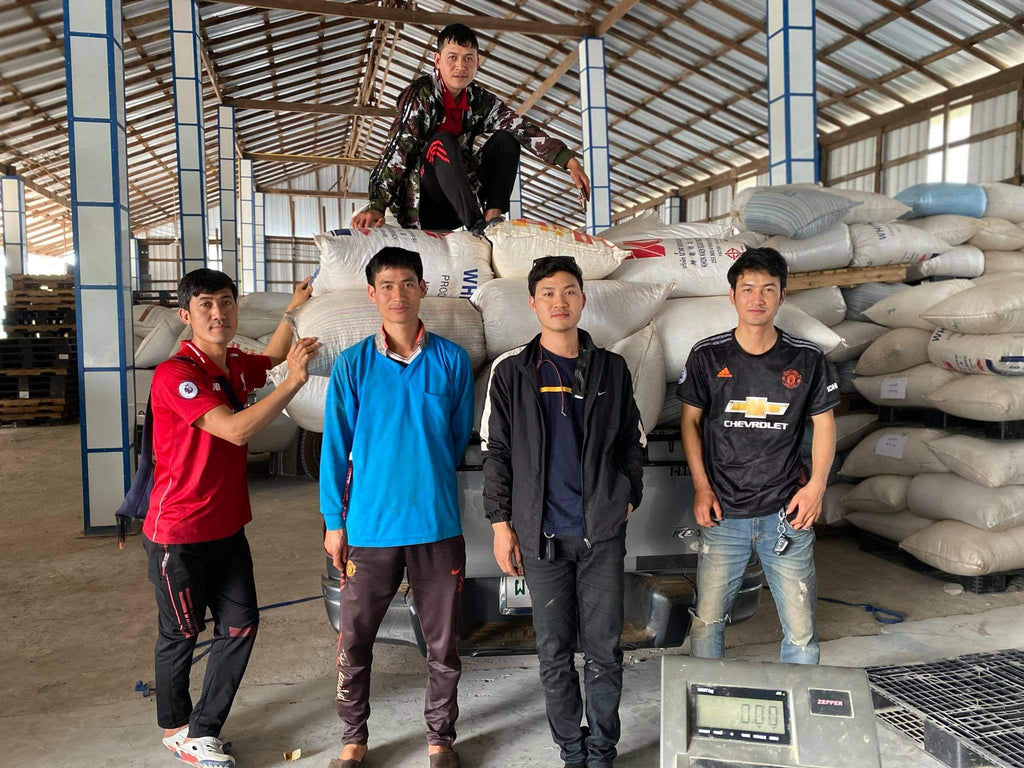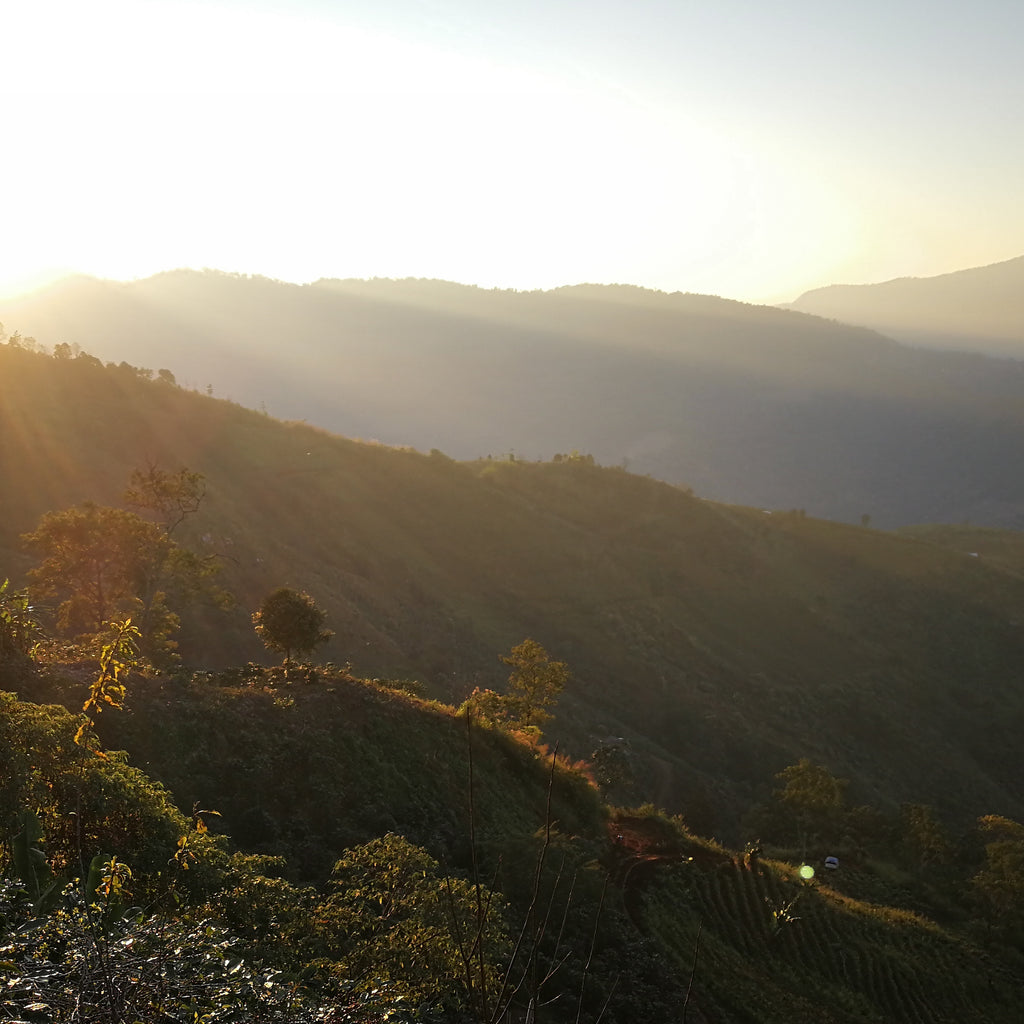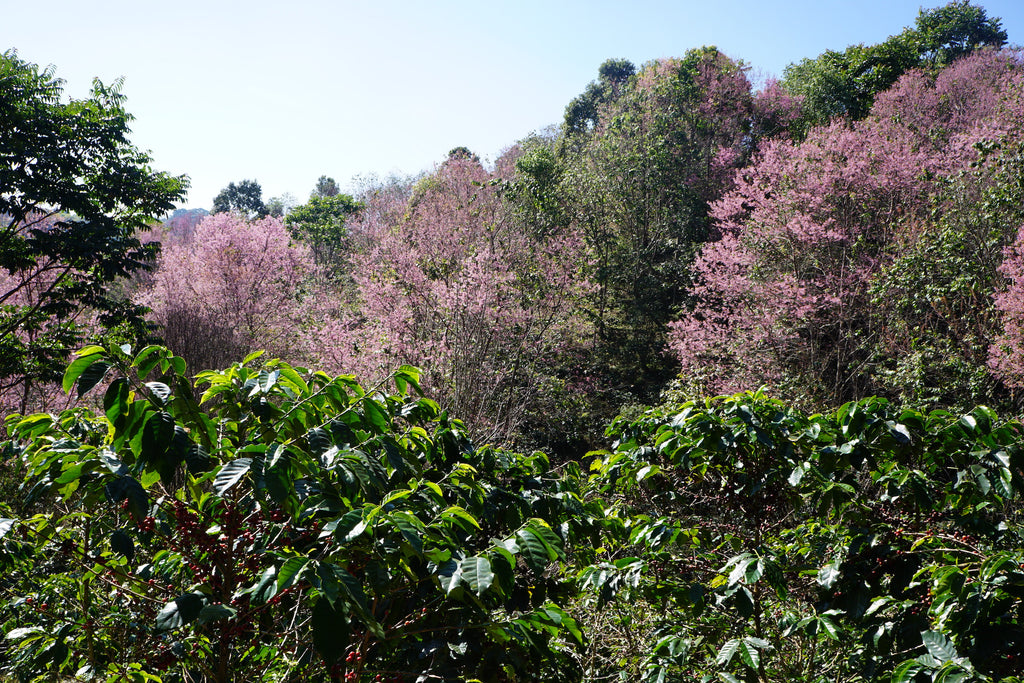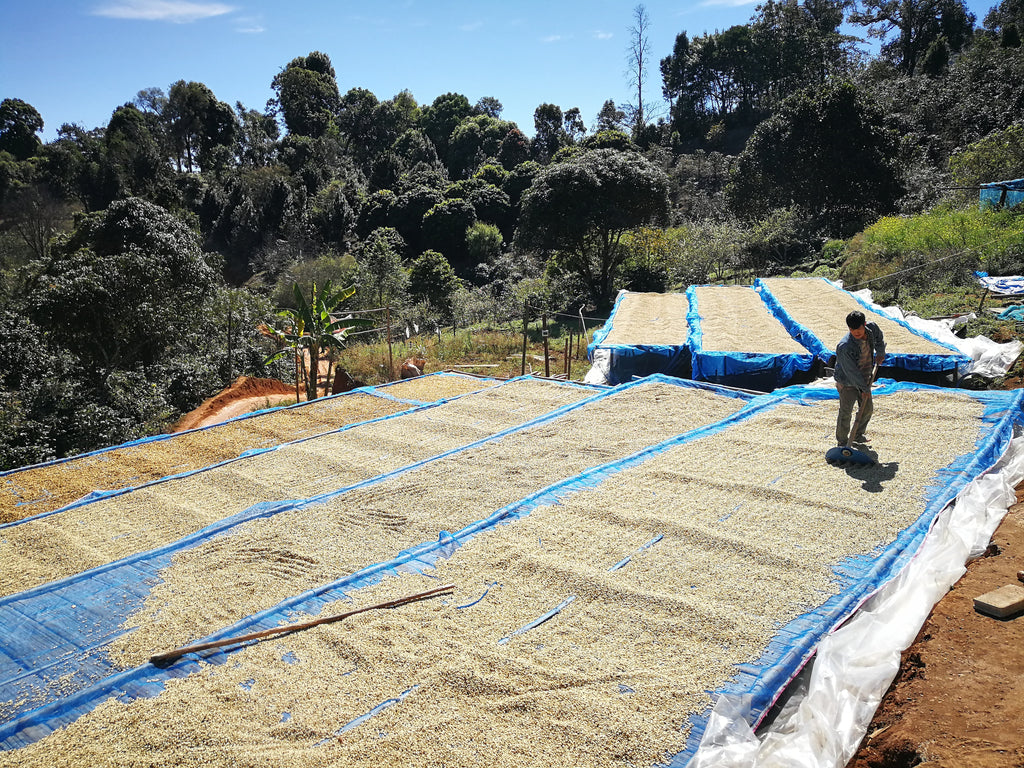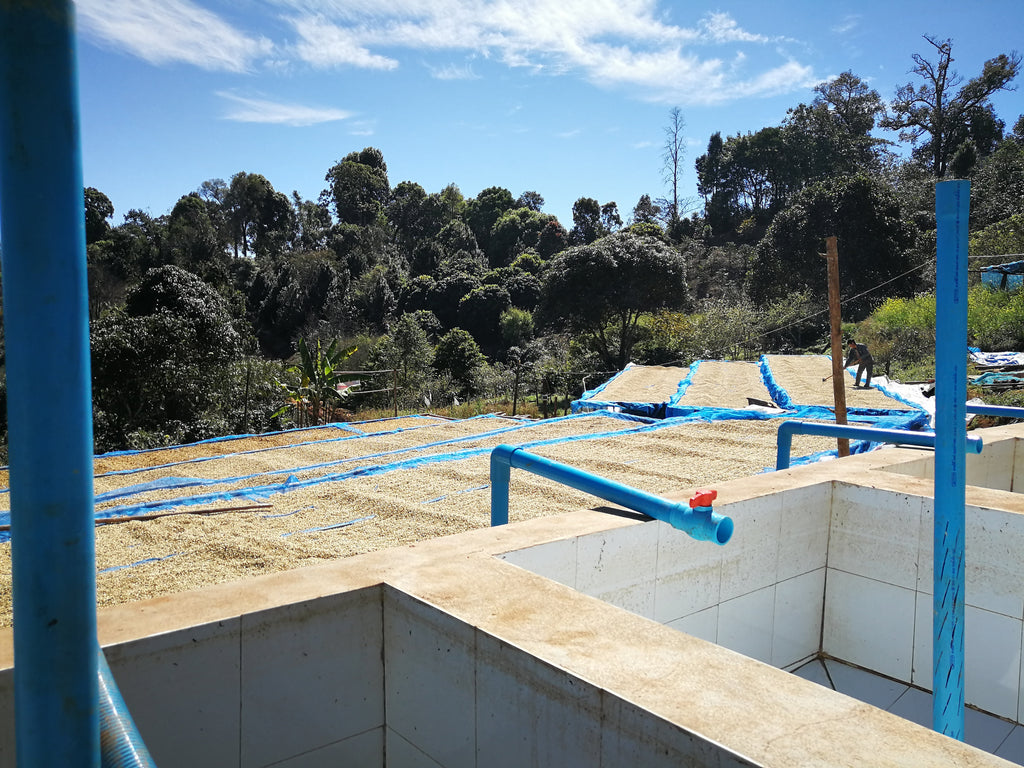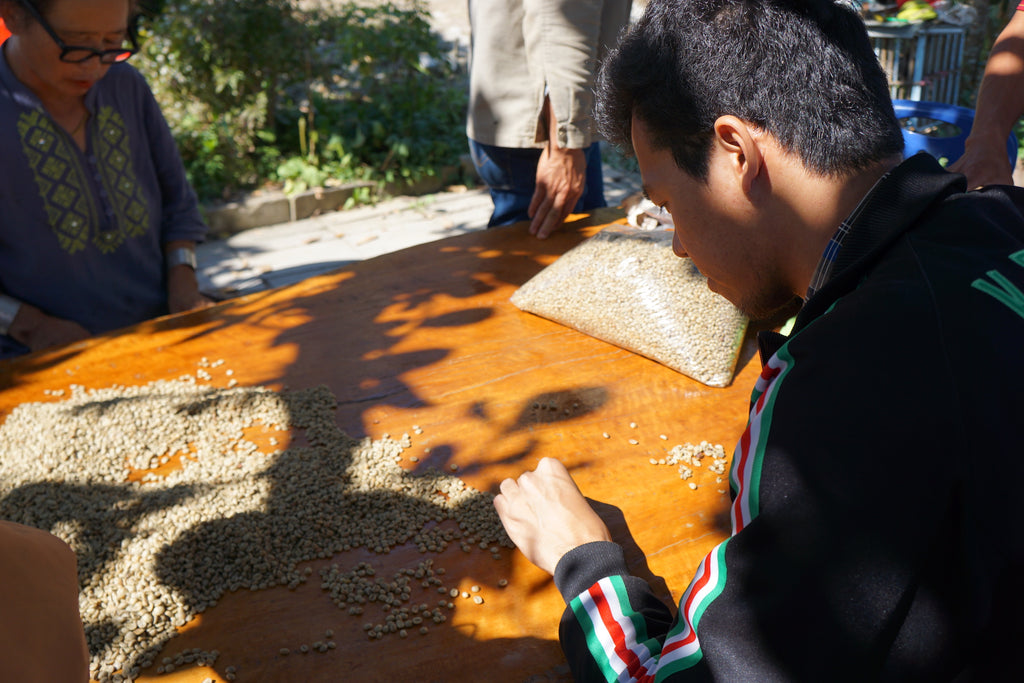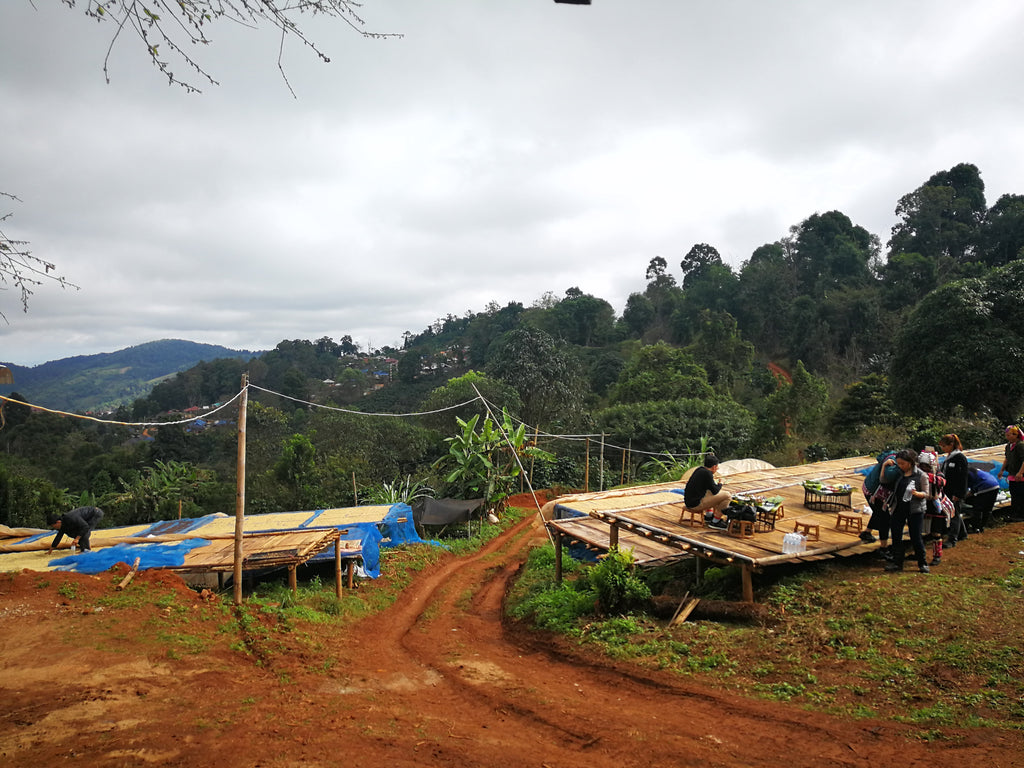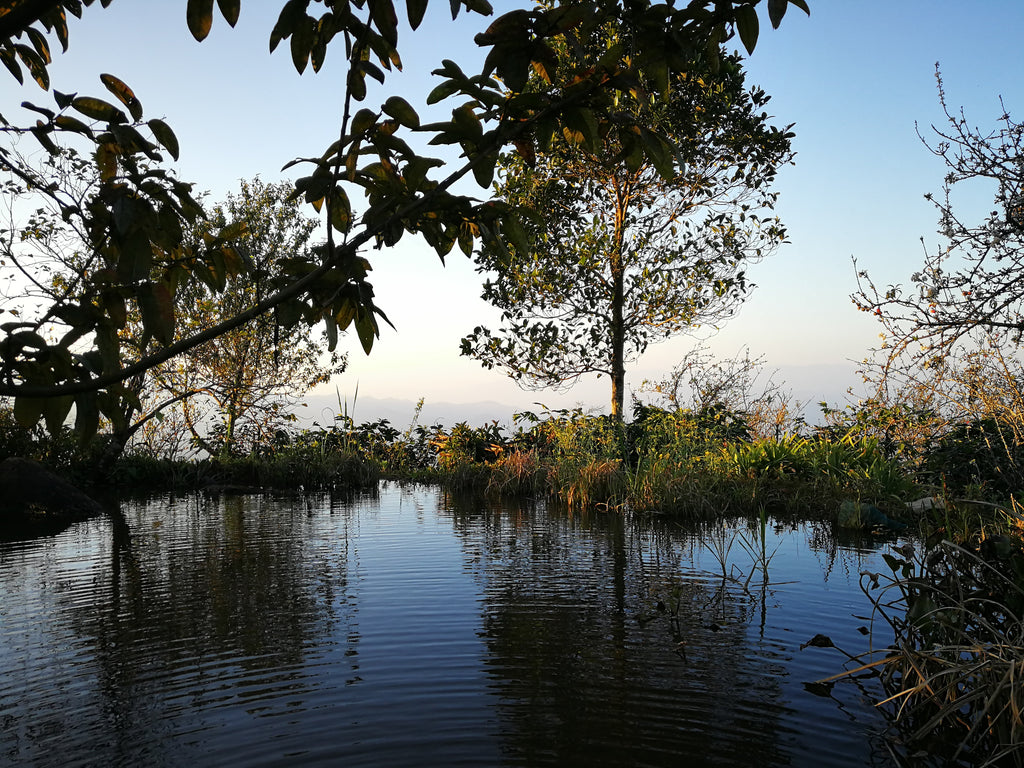Meet the Producers of Doi Pangkhon: A Thai Coffee Story
Nestled in the misty mountains of Chiang Rai, northern Thailand, lies the village of Doi Pangkhon - a vibrant community of around 300 households, each contributing to one of the most exciting developments in Southeast Asian specialty coffee. At elevations ranging from 1,250 to 1,450 meters above sea level, this region is home to a group of dedicated producers whose work is helping redefine Thai coffee on the global stage.
High in the mountains of Chiang Rai, northern Thailand, lies the village of Doi Pangkhon - a remote yet thriving coffee-growing community. Home to around 300 households, each producing approximately 1–2 tons of parchment coffee annually, this region has become a beacon of innovation and quality in Southeast Asian specialty coffee.
Who Are Beanspire Coffee?
Founded by Fuadi Pitsuwan and Jane Kittiratanapaiboon, Beanspire Coffee is a Thai specialty coffee exporter dedicated to elevating the quality and visibility of Thai coffee. With a focus on transparency, traceability, and long-term producer relationships, Beanspire works directly with smallholder farmers to improve processing, infrastructure, and access to global markets.
As the process designer, dry miller, and exporter of this coffee, Beanspire has been working in Doi Pangkhon for nine years, helping transform the region into a hub for high-quality Arabica. Their dry mill is among the most advanced in Thailand, equipped with a destoner, huller, and gravity table, and all coffees are density and hand sorted multiple times to ensure exceptional quality.
A Partnership Rooted in Progress
We at Ozone Coffee Roasters have proudly partnered with Beanspire since 2017, sharing a commitment to quality, sustainability, and producer empowerment. In the early years, Beanspire collaborated directly with individual households on wet processing, purchasing parchment coffee and handling hulling and grading at their own mill.
In the 2017–2018 harvest season, they invested in a wet mill operated by members of the Merlaeku family, five brothers from the Akha Hilltribe minority. This allowed Beanspire to control the process from the cherry stage, while also sourcing cherries from outside the family. The following season, they upgraded the mill with a roof, new pulpers, and improved workflows.
From 2019–2020, further improvements included the installation of an electricity generator, the construction of a cupping lab for farmers, and the laying of new concrete flooring. In 2020–2021, they leased additional lowland space to enhance drying efficiency. By 2021–2022, production capacity had increased by 20%, and drying space was expanded—though heavy rains during harvest led to reduced yields across Thailand.
The 2022–2023 season brought one of the lowest yields on record, paired with the highest prices, driven by the climate crisis. In 2024, farmers faced unpredictable yields due to climate volatility. A high-yield year caught many unprepared, and the situation was worsened by an influx of smuggled coffee from Myanmar and Laos, leaving many households with unsold surplus.
Processing: Kenya-Style, Thai Innovation
Doi Pangkhon’s producers use a Kenya-style washed process, known for producing clean, crisp, and vibrant coffees. Traditionally, this involves a double-stage fermentation: dry fermentation overnight, followed by wet fermentation under water the next night, and finishing with a soaking stage.
In the most recent harvest, Beanspire experimented by extending the dry fermentation stage while minimising the wet fermentation and soaking phases. Drying was conducted on bamboo raised beds for at least 14 days, then completed in the lowlands. This adjustment has resulted in a more complex and expressive cup profile—what Beanspire considers the best harvest season in their nine years of working in Doi Pangkhon.
Varieties and Terroir
Doi Pangkhon sits at 1,250-1,450 meters above sea level, at 19° north of the equator. This latitude makes the elevation particularly significant for coffee cultivation. For comparison, Colombia’s Nariño region lies at 1° north, and Costa Rica’s Tarrazú at 9°, where coffee can grow above 1,600 meters. In Doi Pangkhon, the cooler climate at lower latitudes allows for slow cherry maturation, enhancing sweetness and complexity.
The varietals grown here include:
- Catuai
- Typica
- Chiang Mai – a local hybrid of SL28 × Caturra × Híbrido de Timor
- SJ133 – genetically identical to Costa Rica 95
A Model for Thai Specialty Coffee
Thailand produces around 8,000 tonnes of Arabica coffee annually, mostly in the north, and is the third-largest coffee producer in Asia. Yet Thai specialty coffee remains rare on the global stage. That’s why we’re proud to work with Beanspire and the producers of Doi Pangkhon - to bring you coffees that are not only exceptional in quality but also rooted in resilience, innovation, and community.

